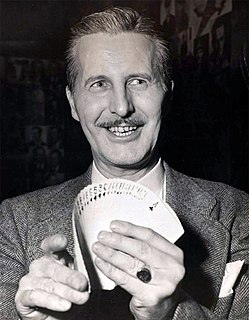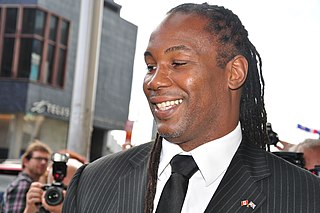A Quote by William H. Gass
Related Quotes
Never trust the translation or interpretation of something without first trusting its interpreter. One word absent from a sentence can drastically change the true intended meaning of the entire sentence. For instance, if the word love is intentionally or accidentally replaced with hate in a sentence, its effect could trigger a war or false dogma.
Writing is linear and sequential; Sentence B must follow Sentence A, and Sentence C must follow Sentence B, and eventually you get to Sentence Z. The hard part of writing isn't the writing; it's the thinking. You can solve most of your writing problems if you stop after every sentence and ask: What does the reader need to know next?
I have to do the work of self-love and affirmation, and say, "I am a woman, I am a person of color, I am the granddaughter of immigrants, I am also the descendant of slaves, I am a mother, I am an entrepreneur, I am an artist, and I'm joyful." And maybe in seeing my joy, you can finish your sentence with, "And I am joyful too."
Suppose that I see a hungry child in the street, and I am able to offer the child some food. Am I morally culpable if I refuse to do so? Am I morally culpable if I choose not to do what I easily can about the fact that 1000 children die every hour from easily preventable disease, according to UNICEF? Or the fact that the government of my own "free and open society" is engaged in monstrous crimes that can easily be mitigated or terminated? Is it even possible to debate these questions?
What is easy to read has been difficult to write. The labour of writing and rewriting, correcting and recorrecting, is the due exacted by every good book from its author, even if he knows from the beginning exactly what he wants to say. A limpid style is invariably the result of hard labour, and the easily flowing connection of sentence with sentence and paragraph with paragraph has always been won by the sweat of the brow.







































